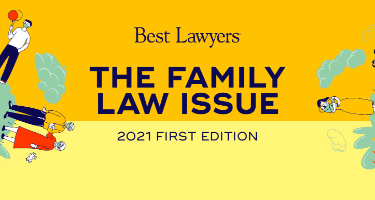This article was originally published on December 29, 2020.
Ponder this attention-grabbing headline: “Man Forced to Pay Child Support Even Though DNA Test Proves Child Is Not His.” It’s an arresting illustration of the reality that the parent-child relationship is not always strictly biological.
Depending on the circumstances, in fact, the law might treat an individual as a child’s legal parent even if there’s no biological connection whatsoever between them. In other cases, someone not biologically related to a child might seek to establish parental rights over a biological parent’s objection. The considerable moral, social, and financial obligations of raising children make it important to understand when the law presumes someone is a parent and, if necessary, what can be done to challenge the presumption of parenthood.
Types of Parentage Presumptions
A legal “presumption” is, simply, a shortcut that helps a court reach a conclusion. In family law, the most important presumption is the presumption of parentage—when an individual is legally considered to be a child’s parent.
Presumptions of parentage can generally be divided into three categories: marital, biological, and intent-based. Let’s take a look.
Marital: The oldest and most common parentage presumption. It assumes that a child born of a marriage is the biological offspring of the mother and her husband. It was created out of necessity: Before the advent of DNA paternity testing, courts relied on the marital relationship to establish biological connections—a presumption that also served to reinforce societal norms and public-policy goals, including keeping the traditional family unit intact and shielding children from the social stigma associated with “illegitimacy.”
One of the best-known examples of the marital presumption is the 1989 Supreme Court case Michael H. v. Gerald D., in which a child’s biological father, who was not married to the mother when the child was born, attempted to establish parental rights. Because California had a marital-presumption statute, however, the mother’s husband was already presumed to be the child’s father. To challenge the presumption with a genetic test, the biological father was required to commence a court action within two years of the child’s birth, which he failed to do. As a result, the court determined that the biological father could not establish any parental rights to the child despite the innate biological connection.
Most state parentage laws feature some version of the marital presumption, and family courts continue to rely on it even though its public-policy rationale—about which more below—is increasingly outdated.
Biological: Commonly used today in contested-parentage proceedings. Widely accessible DNA testing makes it possible to know, with scientific certainty, the identity of a child’s biological parents. It’s tempting to view genetic testing as the best, most efficient way to determine parentage, but with many individuals and couples now opting for assisted reproductive technology of various kinds to start a family, there are instances when a child’s biological parents do not necessarily want to be the legal parents.
Some surrogacy arrangements, for instance, create both biological and what are called “intended” parents. The surrogate may have a biological connection to the child (or she may not, if a donor egg is used), but she likely has no intention of parenting the child once she gives birth—she is instead simply carrying the child for the intended parents. Using strict biological connections to establish parentage here is obviously not the right call.
Intent-based: Focuses on the actions and wishes of the parent seeking to establish parentage, not on his or her marital relationship or biological connection to the child.
The Uniform Parentage Act of 2017 (UPA) offers an example of an intent-based approach. All states have adopted some form of the UPA, but only a handful have enacted the most recent version. Under the act, an individual is presumed to be the parent if he or she lived in the same household as the child for the first two years of the child’s life and, during that time, “openly held out the child as the individual’s child.” This presumption applies even if the individual is not married to the child’s mother and has no biological connection to the child.
Another way someone can help establish parentage is by signing a voluntary acknowledgment of parentage or being listed as a parent on the child’s birth certificate. The legal significance of these two factors, however, varies by state.
Parentage Presumptions and Same-Sex Marriage
Parentage is one area of American law that has not kept pace with the evolving modern family. Many state parentage laws use gender-specific language and appear to apply only to heterosexual couples; they refer to “paternity” instead of “parentage” because the focus is on identifying a child’s father. The child is presumed to have one mother—the woman who gave birth to the child—which does not reflect reality for many families today. The use of gender-specific language creates uncertainty for same-sex couples, because it’s unclear which parentage presumptions apply to their family.
In 2017, the Arizona Supreme Court addressed a gender-specific parentage statute in McLaughlin v. Jones, in which a married lesbian couple had a child via artificial insemination. Even though only one of the women had a biological connection to the child, the couple held themselves out as the child’s parents and entered into a co-parenting agreement.
When the couple later separated, the child’s biological mother attempted to terminate her former partner’s right to contact with the child. The non-biological mother argued that the marital presumption that would apply to a heterosexual couple who had a child during marriage should also apply to their relationship. The Arizona Supreme Court agreed, holding that the non-biological mother was entitled to the same parental rights as the biological mother. The latter sought review of the Arizona decision by the U.S. Supreme Court, which denied it.
Because this issue varies by state, many same-sex couples decide to formalize the parent-child relationship through adoption instead of relying on parentage statutes. This ensures that the non-biological parent will be accorded the same rights as the biological one.
Challenging the Presumption of Parentage
Once parentage has been presumed, circumstances or relationships may change such that a presumed parent or third party wants to challenge the presumption. Depending on the facts of the case and in which state the action is brought, a presumption of parentage can be rebutted by:
- rescinding the voluntary acknowledgment of parentage within the required time frame;
- contesting parentage on the basis of fraud, duress, or material mistake of fact;
- proving that the presumed father and mother never cohabited or engaged in sexual intercourse during the probable time of conception;
- establishing that the presumed parent never openly held out the child as his or her own; or
- submitting to a genetic test.
However, even if an individual can successfully rebut parentage, a court is not required to allow it. Family courts generally have discretion to do what is in the child’s best interests, which may include refusing to disestablish parentage. To evaluate the child’s best interests, family courts look at how much time has passed since parentage was established, and what emotional and financial impact disestablishing parentage would have on the child.
In sum, significant rights and obligations attach to the presumption of parentage. It’s precisely because of these rights and obligations that parents and third parties are motivated to establish parentage (or disestablish it, depending on the circumstances). In such cases, the courts must look beyond a child’s biological connections and consider the parental rights and financial obligations at stake, the intended family structure, and the child’s best interests. Given the legal complexity and time-sensitive nature of parentage cases, it’s important to consult with a qualified family-law attorney when parentage is in question.
Brittney Miller is a member of Moss & Barnett’s Family Law group. She assists clients in all family-related matters, including parenting, support, division of assets, stepparent and same-sex adoptions, antenuptial agreements, and many other issues confronting modern families. Brittney has extensive experience with cases involving complex social and financial issues at both the trial and appellate court levels.
Jim Vedder is a member Moss & Barnett’s Family Law group. He has significant trial and settlement experience in complex marital dissolution matters, including the division of marital and nonmarital assets, the division of closely held businesses, spousal maintenance, child support, and custody issues. Jim brings a compassionate approach to difficult family law cases in both alternative dispute resolution forums and litigation.


























